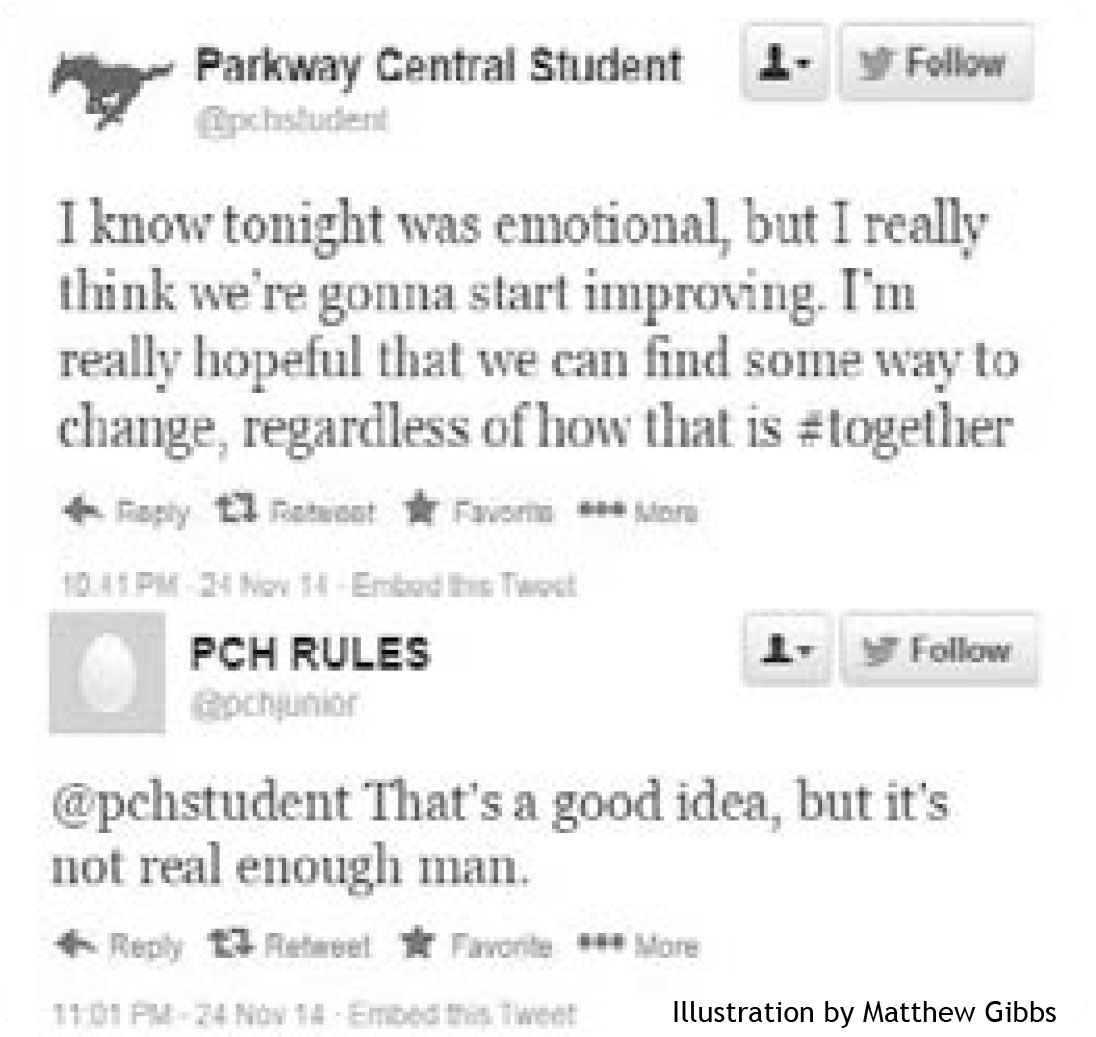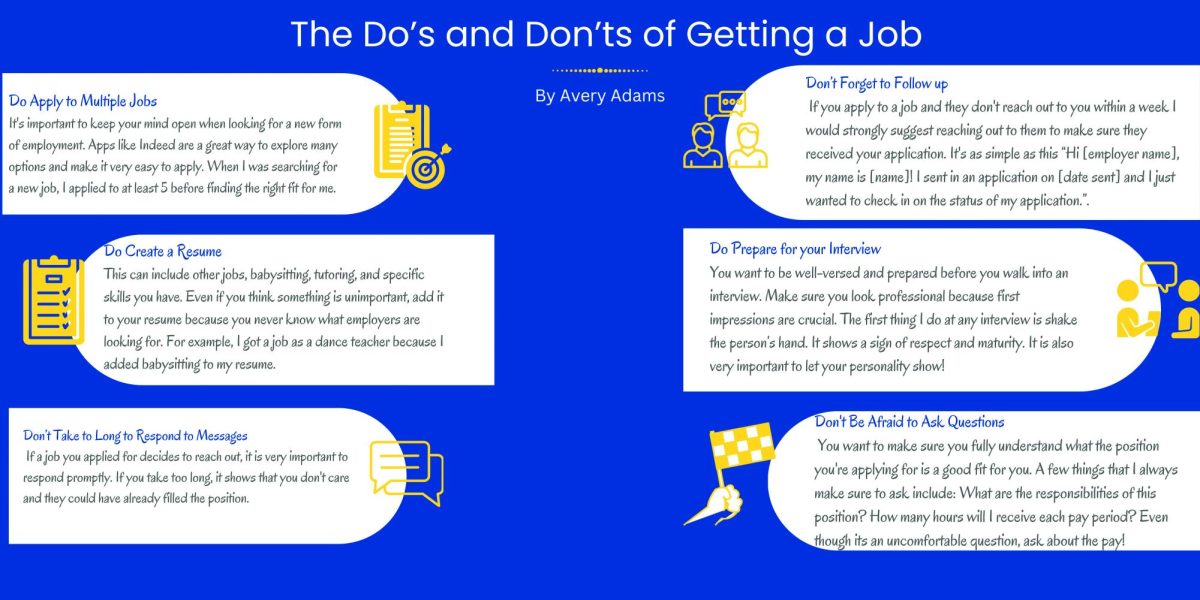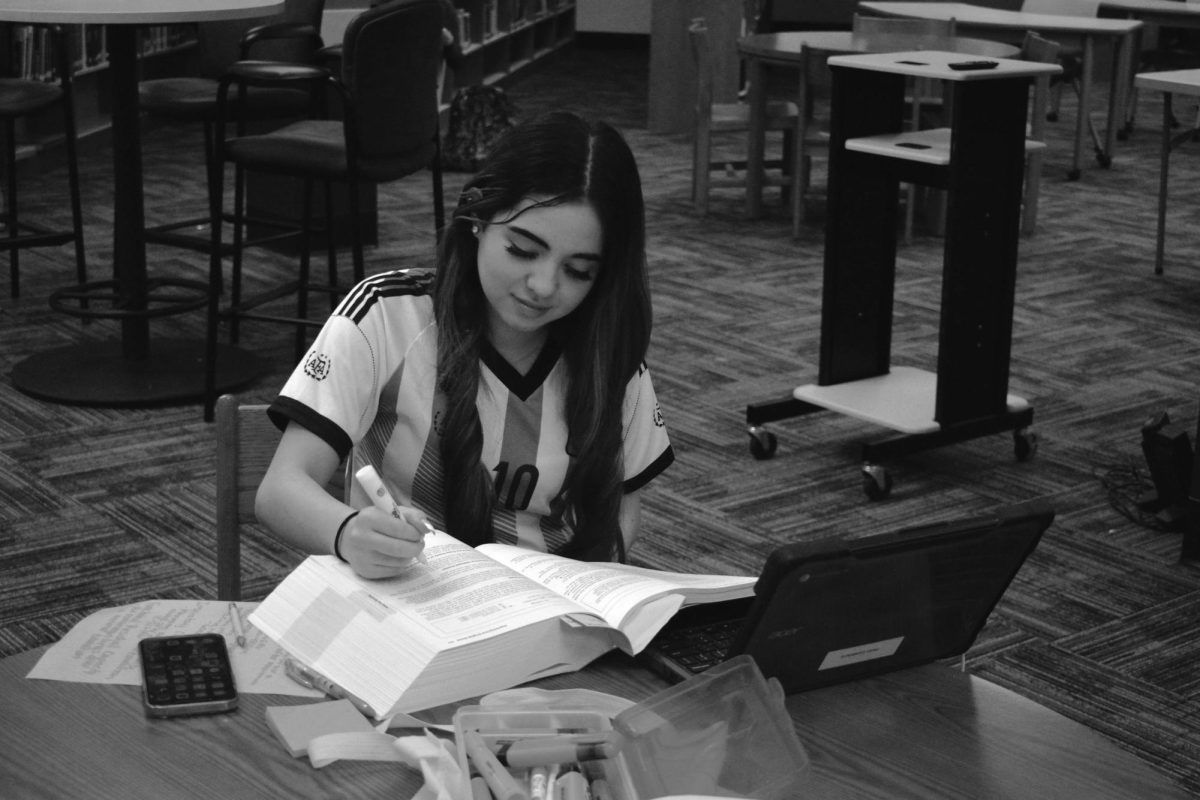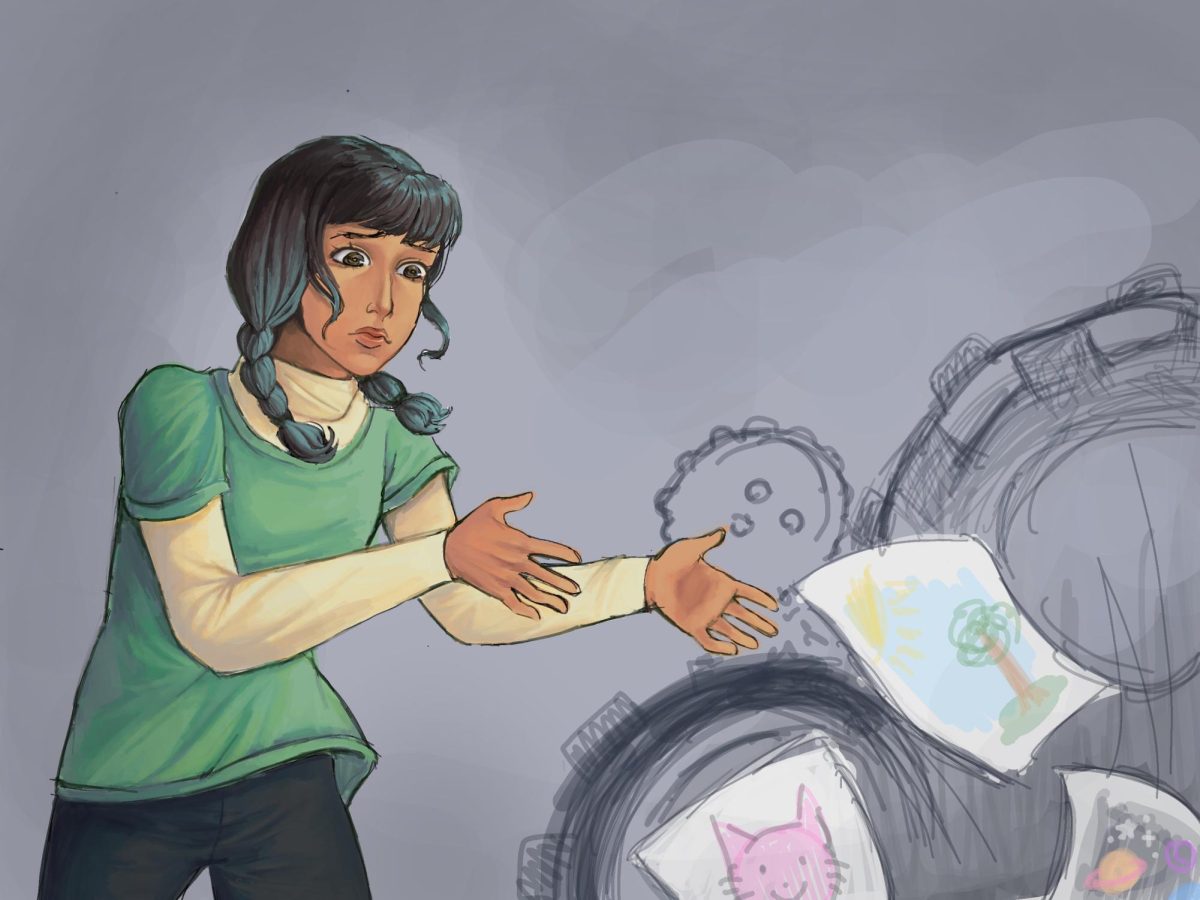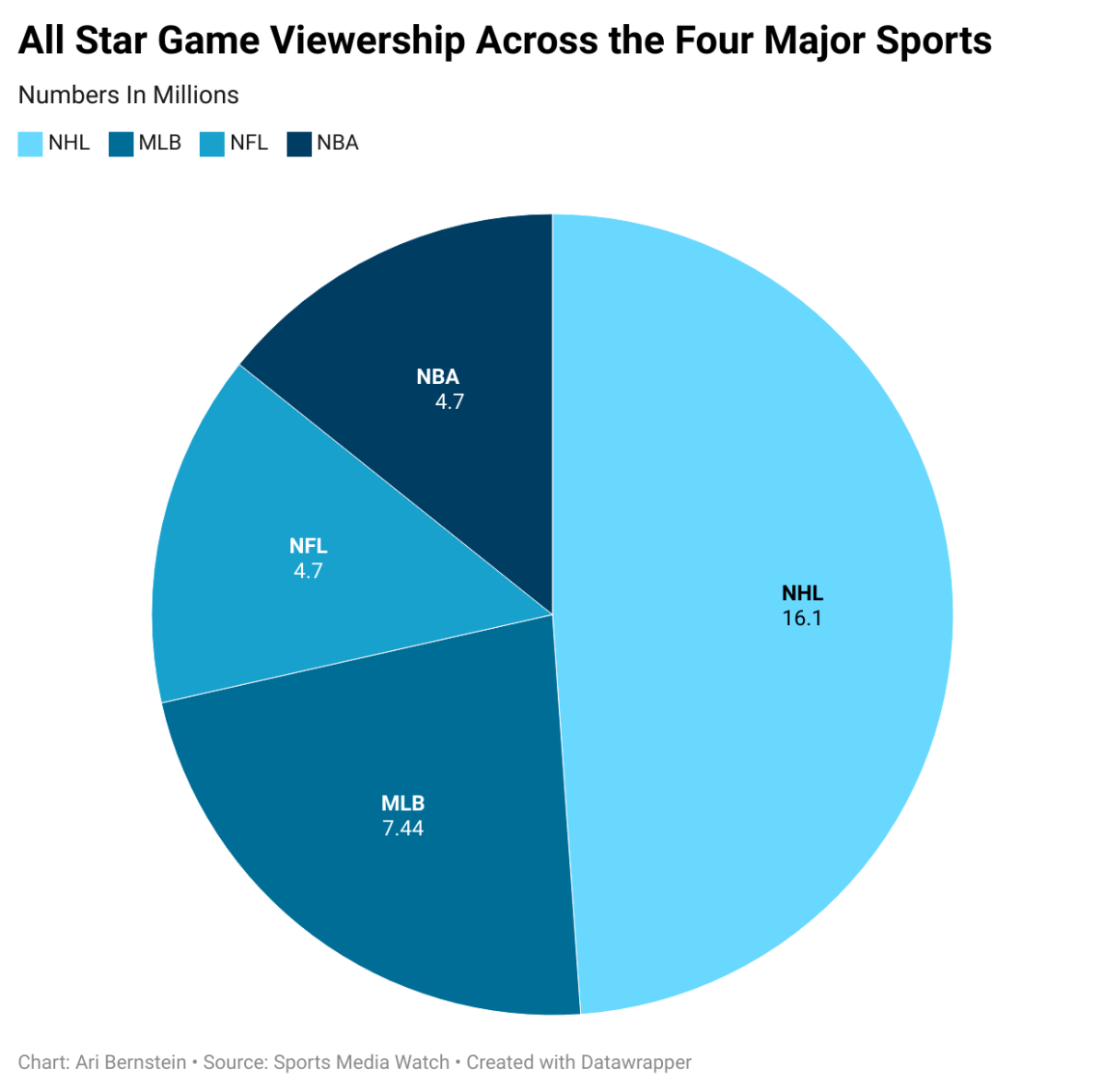An image comes to mind: two podiums facing each other, arguments prepared and participants eager for discourse. While such formal debates are not seen frequently in high school, they continue to exist. They’re simply found in a different venue: a virtual one. Political discussion has far from ceased; it is now just found on a phone, held inside a button with a small, blue bird or “F.”
Issues in Ferguson have sparked debates across not only the city, but the state, country and world. Protests and actions from sides supporting all opinions have been put on display, forcing all to form an opinion.
These newly formed opinions have composed Twitter timelines and Facebook news feeds since the initial shooting of Michael Brown on Aug. 9, with possibly the heaviest traffic of posts coming on the day of grand jury announcement, Nov. 24. Prior to, and most notably, following the grand jury’s announcement that the shooter, Officer Darren Wilson, would not be indicted, Twitter and Facebook exploded. Students with different demographics and varying knowledge of the issue voiced their opinions.
As expected, fights ensued. Some were called racists, others were deemed radicals. Some even chastised others for having the nerve to voice their vexed opinion.
 Yet, the only wrong tweet, post or statement that developed from that night were those chastising others to be quiet, to swallow their beliefs. Social media’s role as an outlet for teens to voice their opinions and beliefs proves unreplicable.
Yet, the only wrong tweet, post or statement that developed from that night were those chastising others to be quiet, to swallow their beliefs. Social media’s role as an outlet for teens to voice their opinions and beliefs proves unreplicable.
Possibly the most relevant arguments and discussions came in our own Parkway Central senior Facebook group, a group typically comprised by far lighter conversations such as skip days and Homecoming themes. Planned events and opinions regarding Ferguson were met by a dizzying number of wide-ranging opinions.
Sure, ignorance was present, but so were educational conversations in which some of the uneducated learned, something not always prominent among students.
While all are encouraged to share their beliefs, some statements on social media clearly crossed an unwritten boundary, developing into cyber hate mail. Unutterable tolerances shamed news feeds in the form of racist comments. Calls for some to “return to Africa” or simply “stay at city schools” scarred the victims and mortified the community as much as statements to “get rid of all the cops.”
Nights of heavy social media discussion can prove similar to warfare, fought by the “keyboard warriors” that develop. Despite the aggressive attacks on these sites, discussing social issues on social media among teenagers often has positive results. These discussions open eyes to all opinions, whether it causes angry disagreement or provoked thought.
Rare are modern forums in which teens are permitted to vocalize their beliefs, not just regurgitate the maxims that their parents or society want them to say. Despite its many flaws, social media creates a zone for high school students to share their beliefs to their peers, to have a voice, to make a difference through their words. Keep voicing your opinion, Parkway Central. Be proud of what you believe, and be thankful you have a place to openly discuss it; just don’t let your freedom of speech be an excuse for hate.


